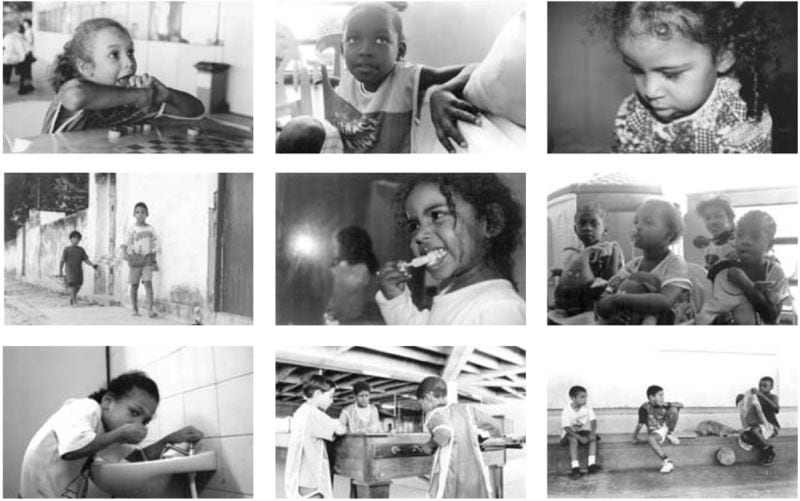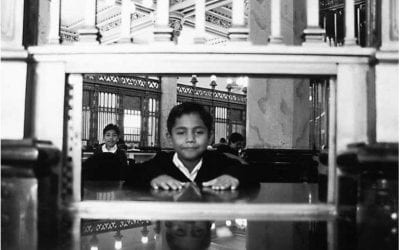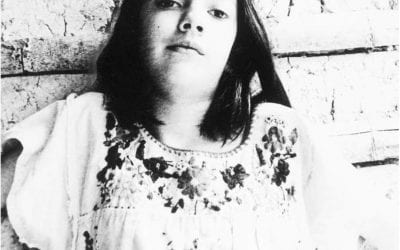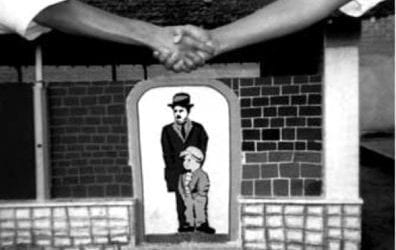Children of the Favela
Adults with the Body of Children

Top row (left to right): Checkers girl, boy, Isabella; Middle row (left to right): children with kite, Isabella, kids, Bottom row (left to right): drinking girl, table soccer, and soccer boys. Photo by Dominique Elie.
In Rio de Janeiro, I spent my time with children of the favela, both on the streets and at the community center Espaço Criança Esperança created by Viva Rio serving the Cantagalo/ Pavaõ/ Pavaõzinho favela. These images gather up cultural icons that I feel define Rio; the graffiti, the favela, the fishing docks, the botequim, the Catholicism, Corcovado, the street beggars, and the newsstand—all part of my everyday surroundings. The children I photographed all belong to the lower class, most of them living in the nearby favela. The exception here is the one girl that comes out repeatedly in my photos: Isabella; the daughter of my host family’s maid. However, all of these children share a similar particularity in their character. To me they all seemed like adults trapped within the bodies of children. They were extremely open to being photographed and even directed me more than I did them at times. They all possessed maturity and a lack of innocence that’s common in children from their backgrounds. They took to me easily; a complete stranger with an intimidating machine in my hands at all times. I think the first photo I took, the one of the girl drinking from the sink, is a perfect example of this; she looks straight at the camera after knowing me for only twenty minutes and reveals so much about herself with a single stare.
Winter 2004, Volume III, Number 2
Dominique Elie is a sophomore History and Literature concentrator in the North America and Latin America department. She received a DRCLAS internship grant to work with the NGO Viva Rio this past summer located in Rio de Janeiro, Brazil.
Related Articles
Reconfiguring Childhood
Children are a spur, a commitment, a way of imagining the future—but all too often these sorts of phrases just rattle around a vacuum, their utterance the beginning and end of the…
Poverty is not Destiny
A recent study by the American Association of University Women Educational Foundation (2001) made national headlines as it documented that Hispanic women had the highest dropout…
Photography and Citizenship
This photoessay examines how visual literacy might be used as a tool to prevent HIV/AIDS with at-risk children and youth in Brazilian juvenile centers. Visual literacy can be understood as the…




